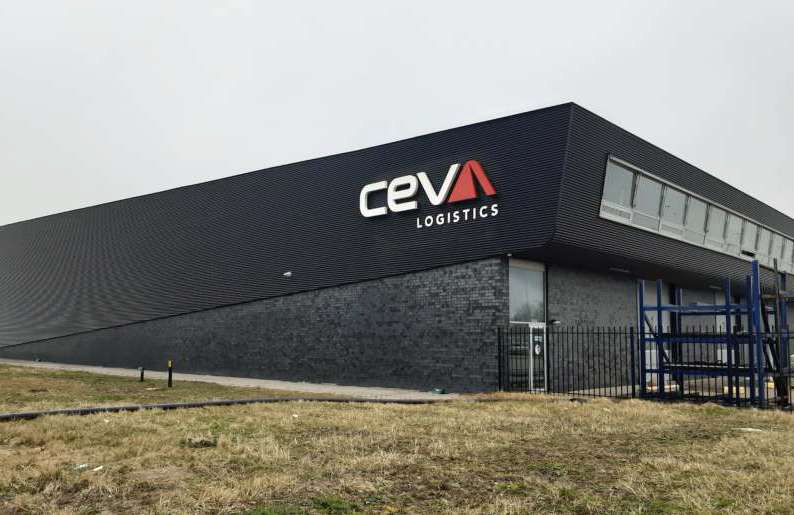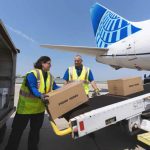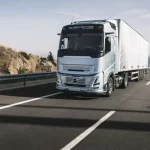Ensuring safety in the lithium supply chain: The CEVA Logistics way
By R.Chandrakanth
Lithium which is termed as ‘white gold’ for electric vehicles (EV) is in high demand worldwide as the adoption of EV has been unprecedented in recent years. The demand is worldwide, but production is limited to Australia which accounts for 52% of the world’s lithium, followed by Chile 25%; China 13%; Argentina 6%; and Brazil, Zimbabwe, Portugal and the United States 1% each.
China, however, is the most dominant player in the lithium supply chain, having acquired $5.6 billion worth of lithium assets and hosting 60% of the world’s refining capacity for batteries. The demand for lithium is expected to reach 1.5 million tonnes of lithium carbonate equivalent by 2025 and over 3 million tonnes by 2030. The global lithium-ion battery market size was valued at USD 48.19 billion in 2022 and is projected to grow at a compound annual growth rate (CAGR) of 18.9% from 2023 to 2030.
India among top importers of lithium battery
India is the topmost importing country of lithium battery with 209,245 shipments in 2022, followed by the United States with 195,490 shipments and Vietnam with 88,445 shipments. Nearly 96% of India’s lithium-ion cell and battery imports are from China and Hong Kong.
The Indian government has created momentum through its Faster Adoption and Manufacturing of Hybrid & Electric Vehicles schemes that encourage, and in some segments mandates the adoption of electric vehicles (EV), with a goal of reaching 30% EV penetration by 2030. Worldwide the target is 100 million electric cars by 2030 while the demand for technology and healthcare devices is also exponentially growing.
Accidents related to carriage of lithium
Lithium batteries have to be moved across the world and that itself is a challenge, as safety while moving is of utmost importance. There are instances of accidents related to lithium while being transported by air and three accidents are cited – first on February 7, 2006 in Philadelphia a DC-8 aircraft was destroyed by fire; September 3, 2010 a Boeing 747 crashed in Dubai due to an inflight fire; and on July 27, 2011 in South Korea, a Boeing 747 crashed into the sea, again due to in-flight fire. All the three aircraft reportedly were carrying lithium, calling regulatory authorities to put stringent standards of carriage.
IATA charter on safe carriage of dangerous goods
The International Air Transport Association (IATA) has often called on governments to support the safe carriage of lithium batteries by developing and implementing global standards for screening, fire-testing, and incident information sharing. The IATA has insisted governments to step-up enforcement of safety regulation, including stiffer penalties for rogue shippers of and criminalization of egregious or willful offenses while transporting lithium batteries. The IATA has asked governments to shore up activities with additional measures such as development of safety-related screening standards and processes for lithium batteries; development and implementation of a fire-testing standard that addresses lithium battery fire containment; enhancing safety data collection and sharing information between governments.
These measures would support significant initiatives by airlines, shippers, and manufacturers to ensure lithium batteries can be carried safely. The IATA actions have included:
Updates to the Dangerous Goods Regulations and the development of supplementary guidance material.
Launch of a Dangerous Goods Occurrence Reporting Alert System that provides a mechanism for airlines to share information on events involving undeclared or misdeclared dangerous goods.
Development of a Safety Risk Management Framework specifically for the carriage of lithium batteries.
The launch of CEIV Lithium Batteries to improve the safe handling and transport of lithium batteries across the supply chain.
“Airlines, shippers, manufacturers, and governments all want to ensure the safe transport of lithium batteries by air. It’s a joint responsibility. The industry is raising the bar to consistently apply existing standards and share critical information on rogue shippers. But there are some areas where the leadership of governments is critical. Stronger enforcement of existing regulations and the criminalization of abuses will send a strong signal to rogue shippers. And the accelerated development of standards for screening, information exchange, and fire containment will give the industry even more effective tools to work with,” said Willie Walsh, IATA’s Director General.
CEVA Logistics first to get CEIV lithium battery certification
One of the top logistics companies that is involved in movement of lithium is CEVA Logistics. In 2021, CEVA Logistics became the world’s first company to receive IATA’s new CEIV Lithium Battery certification after teaming with IATA to support the development of the new certification program. CEVA’s Amsterdam and Singapore air freight stations were CEIV certified in the handling of lithium batteries. The certification confirmed each facility’s ability to properly handle and store lithium batteries, as well as validated the necessary training and expertise of on-site employees.
In an email interview, the Chief Operating Officer, Air Freight, CEVA Logistics, Peter Penseel tells Air Cargo Update that the company is in the forefront of ensuring safety while transporting dangerous goods, including lithium.
He mentioned how after teaming up with IATA to develop and pilot the CEIV Lithium Battery Certification in 2021, CEVA Logistics became the world’s first company to receive this IATA CEIV certification at our Singapore and Amsterdam locations. CEVA now has a global network of nine strategically located air freight stations certified under the program: Amsterdam, Atlanta, Detroit, Hong Kong, Frankfurt, Incheon, Shanghai (PVG), Singapore and Tokyo.
CEVA Logistics footprint in India
Asked specifically about CEVA Logistics footprint in India which is a top importer of lithium batteries, Penseel said “India represents a fast-growing economy and an important market for logistics and supply chain companies. CEVA Logistics is currently present in 75 locations across 35 cities in India. In addition, we recently announced that we are acquiring 96 percent of Mumbai-based Stellar Value Chain to advance CEVA’s regional and global growth strategy through scale and local expertise. CEVA will acquire approximately 7,700,000 square feet of space across more than 70 facilities in 21 cities across India. Also, we look forward to welcoming the Stellar workforce of nearly 8,000 full-time and temporary employees, who will enable us to further develop our presence in India.”
“This enhanced scale will enable us to not only serve domestic customers looking to expand internationally, but also support multi-national customers looking to boost their reach in India. With new manufacturing trends and supply chain routes developing across APAC, we believe air freight in India will continue to grow as a result of these factors,” he said.
Challenges of handling lithium batteries
On the challenges of handling lithium batteries, Penseel mentioned “Air freight shipments of lithium batteries, or products containing them, face extensive restrictions due to the critical risk of thermal runaway if the shipments are mishandled or stored improperly. A situation involving thermal runway can lead to fires or explosions, which could endanger lives. Consequently, not all airlines are inclined to accommodate these batteries. Many impose stringent weight limits and other regulations, such as a maximum state-of-charge of 30 percent of their rated capacity. Other airlines choose to ban batteries exceeding 35 kg (like EV batteries) in passenger cargo compartments”.
Adding, “At CEVA, we have processes and procedures in place that help us detect undeclared goods—which is a major concern for this topic. The IATA certification is an important step, and we firmly believe that it will improve the safe handling and transport of lithium batteries across the supply chain. However, we also believe that the industry needs the support of regulatory and governmental bodies to enforce existing regulations to deter those who would jeopardize safety through means of false declarations or paperwork. Such practices pose a safety threat to air cargo handlers, transport crews, and in the case of passenger cargo transport—the passengers and crews on board. Our industry can dedicate itself to safety in this area, and we are taking significant steps to improve safety at every step of the transport process, but there must be much stiffer penalties and real, consistent enforcement from local and international bodies to curtail false declarations from shippers willing to risk lives to avoid properly declaring shipment contents. People’s lives are at stake.”
CEVA has significant experience in transporting all types and sizes of batteries for customers in automotive, technology, healthcare, industrial and consumer & retail industries. In the automotive market, CEVA’s expertise in new electric vehicles (NEV) batteries includes working with 14 of the 15 largest global automotive original equipment manufacturers.
While the certification boosts CEVA’s air freight credentials for transporting lithium batteries, it supports customers along the battery lifecycle through contract logistics and freight management services in air, ground or ocean transport. CEVA Batteries Solutions are compliant, tailored, end-to-end global and local logistics services, ensuring the integrity of customers’ battery shipments.














